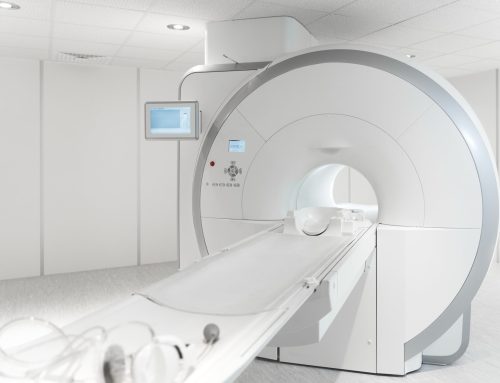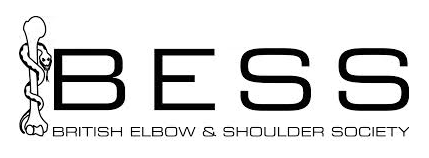Relieve Your Agony — See a Shoulder Pain Specialist
Fed up with a painful shoulder that’s not getting better and want to get back to doing what you love? Perhaps the pain is causing you restless, sleepless nights. If your pain has increased and you’re experiencing reduced movement and function in your arm don’t put it off any longer! Start 2023 the right way by relieving yourself from agonising shoulder pain.
If you have tried everything from an ice pack inside a pillowcase to massages, acupuncture, and medication, it’s time to get your shoulder pain sorted. One sure-fire way of finally ridding yourself from agony is to see a shoulder pain specialist — i.e., someone who has the expertise to diagnose your shoulder pain and design a treatment plan that works.
Why suffer with shoulder pain?
Shoulder pain is very common and is the third most common reason for why someone goes to consult with their GP. What often surprises me is just how much pain people will put up with, or try to ignore even when the pain is affecting their daily lives and sleep. It does not have to be this way. There are many options to stop your pain and some of them are quite simple. Many people are worried that if they see a surgeon they will be told they need to have surgery straightaway, and before you know it, you are in an operating theatre and the surgeon is wielding a knife! In my practice this is simply not true. Surgery is the last resort.
Why does my Shoulder hurt?
There are many reasons why your shoulder may be painful. Sometimes the pain may be originating from a problem in your neck or an imbalance in your pelvis. It is important that you see a specialist who can investigate and exclude these factors.
The shoulder itself is a ball and socket joint that is held together by a capsule and a series of ligaments. The rotator cuff muscles originate from the shoulder blade and surround the joint before condensing into tendons that attach to the arm bone. These muscles contract to move the arm through a wide range of movement required for everyday activities such as getting dressed or performing exercise.
The payoff for this wide range of motion, however, is that the shoulder joint is vulnerable to instability and shoulder joint dislocation.
Shoulder pain may be due to repetitive overhead movements that result in impingement syndrome or rotator cuff tears. Athletes that use overhead activities such as swimming, tennis, javelin-throwing are more vulnerable to these conditions.
Injuries to the shoulder from an isolated episode of trauma such as a rugby tackle or fall from a horse or mountain bike. This can result in a clavicle fracture or ac joint dislocation.
Severe pain that is worse at night may indicate a more serious problem such as frozen shoulder, arthritis or infection. Fortunately primary bone tumours are rare, but if you have previously had cancer it is important to exclude a secondary metastasis.
You can read more about different types of shoulder pain here. link to blog what does my shoulder hurt.
What happens at the first consultation with a shoulder pain specialist?
Your shoulder pain specialist should always base your treatment on an understanding of how it’s impacting on your life and the things you enjoy doing. As a shoulder surgeon with several years of experience, I always start the consultation with finding more about you. The answer is usually in the story that patients tell me, so I go into a lot of detail. I will ask you many questions about your daily routine, your physical activities and your job. I get quite specific about your physical exercise training programs as often the solution to your shoulder pain lies in tweaking some of your daily habits and routines.
Then I examine you carefully, start with your overall posture and neck movements and I watch how your shoulder moves. I pay close attention to the muscles that support the shoulder blade and then test the strength and stability of the different structures surrounding the shoulder joint.
The next stage in your diagnosis would usually involve some imaging such as X-ray, ultrasound CT scan or MRI scan. Putting all this information together, I can give you an accurate diagnosis, which is the starting point for your bespoke treatment plan. I always give my patients a quick ‘anatomy lesson’ with 3D images of the shoulder before we go through the radiology results. The anatomy around the shoulder is complicated and with the anatomy imaging software I use, I can remove the different layers of muscles, and spin the images around so that you can get a good understanding of what is happening inside your body.
What does treatment involve?
Patients often say to me, “One of my friends had this problem and they had this treatment.” I always reply that each person is different and each shoulder within each person is different. I will design a treatment plan that is specific to your needs. In most cases physiotherapy is usually sufficient to improve your pain. If you have tried physiotherapy already, then an injection of steroid may be required to stop the pain so that the physiotherapy exercises can be performed efficiently.
If surgery is needed to fix your shoulder, I will explain each stage of the process slowly and carefully with computer animations so that you know exactly what will happen and when. We will go through all the options and the pros and cons of each stage, and potential complications will be openly discussed. You’ll be fully informed so that you can be confident in your choice of treatment.
Treatment does not end with surgery. You will need complementary treatment, such as a short course of physiotherapy or osteopathy, after the operation to get your shoulder moving and functional again.
I take a holistic approach to care, and work closely with other therapists and other clinicians to optimise and expedite your recovery. I am happy to work with your personal therapists, but can also recommend people in your area to help with your post-operative care. I’m also keen to work with your personal trainer as getting you back to doing what you love best is the whole point of treatment.
A life free from shoulder pain
The journey to a life free from shoulder pain begins by seeing a specialist, who should listen empathically to your concerns and ask pertinent questions to determine how this is affecting your life. They should examine your shoulder and exclude other causes for your pain, such as neck or spine issues. Appropriate radiological investigations will confirm the diagnosis and a treatment plan can be started.
If you are affected by pain in your shoulder, book an appointment to see me. List your concerns and prepare your questions ahead of time so we can work through this together and you will get the most out of the consultation. You don’t need to suffer any more, let’s end your misery and get your shoulder pain fixed.
Book an Appointment now and make 2023 a year free from shoulder pain.
For more information on shoulder problems, visit How I Can Help.
For more information about me and my clinic, visit About Me.
Client testimonial:
Susan is amazing. Not only did she transform my shoulder with the surgery, but her frank and helpful approach meant I was kept really informed throughout. She also places a real focus on rehabilitation, recommending an excellent physio to me but also recommending particular exercises (even demonstrating them herself to ensure I understood them correctly).
Ms Susan Alexander is a Consultant Orthopaedic Surgeon and President of the Independent Doctors Federation.
She specialises in all shoulder conditions, including frozen shoulder, rotator cuff tears, dislocations and arthritis. Based in London, she practises at Fortius Clinic and King Edward VII’s Hospital. Ms Alexander is highly experienced in minimally invasive (keyhole) shoulder surgery and is known for her meticulous, patient-centred and holistic approach.
She focuses on accurate diagnosis, bespoke treatment planning, and ongoing support throughout recovery. Learn more about Ms Susan Alexander here.










